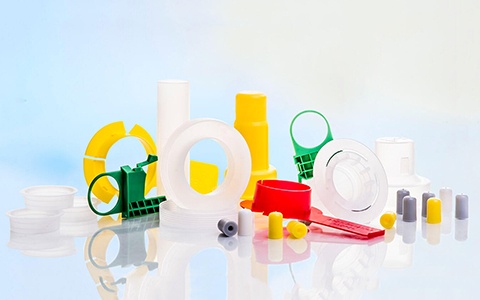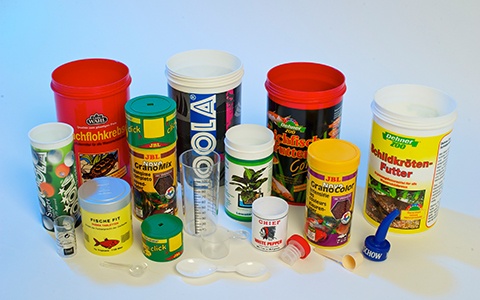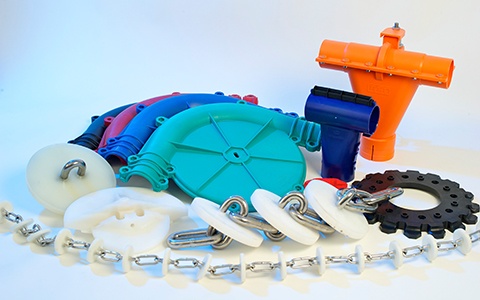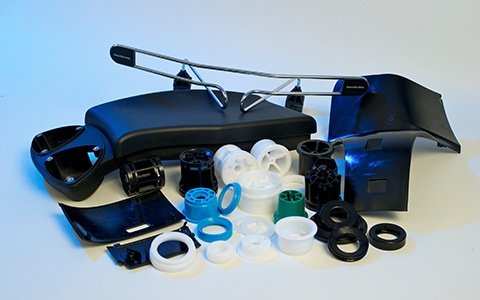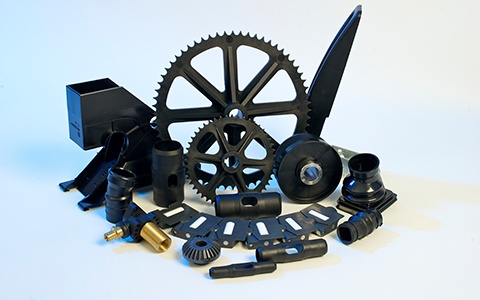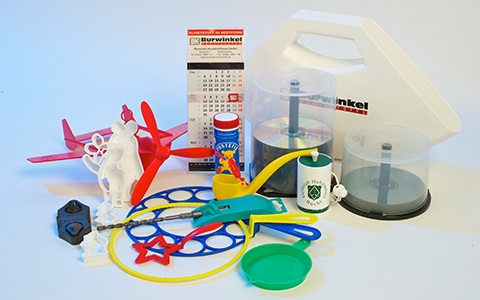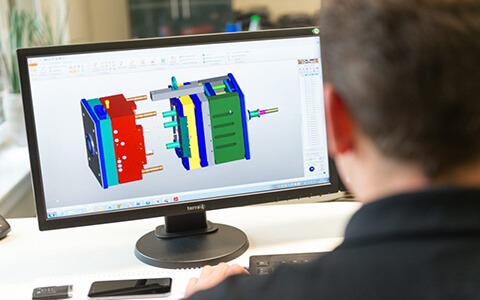I. GENERAL BUSINESS TERMS AND CONDITIONS
Terms of delivery and payment of Burwinkel Kunststoffwerk GmbH, Rienshof 7, 49439 Steinfeld-Mühlen
For use in business transactions with companies:
§ 1 General
(1) Only these General Terms of Delivery and Payment shall apply. General terms and conditions of the customer shall apply only insofar as Burwinkel Kunststoffwerk GmbH (hereinafter referred to as Supplier) expressly consented to them in writing. (2) These terms shall also apply to all future transactions between the contracting parties.
§ 2 Offers
The offers of the supplier are always non-binding, they are usually given free of charge.
§ 3 Order
(1) The specifications laid down in the supplier’s order confirmation shall specify the characteristics of the delivery item comprehensively and conclusively.
(2) In particular, public statements made by the seller, the manufacturer, their assistants or third parties (e.g. descriptions of product properties in public) do not contain descriptions which supplement or alter the specifications of the delivery item.
(3) Subsequent changes to orders are excluded in principle. Insofar as the work has not yet been started and the material has not yet been ordered, a mutually agreed change of the order may be agreed. Any additional costs incurred are to be borne by the customer.
§ 4 Delivery
(1) The delivery times of the supplier are in principle only approximate and non-binding. Agreements which deviate from this concerning a binding delivery date must be made expressly and in writing. If the supplier is unable to deliver on time, he is to notify the customer immediately.
(2) If the supplier is behind on the delivery date due to reasons for which he is responsible and if the customer has tried to set a reasonable period of grace without success, he can withdraw from the contract. Claims for damages on the part of the customer due to breach of duty are excluded, unless the supplier or his vicarious agents have acted intentionally or with gross negligence.
(3) Any unforeseen events for which the supplier is not responsible (e.g. lack of energy, delays in the delivery of essential components and other materials, import difficulties, operational and traffic disturbances, strikes, lock-outs, force majeure) extend the delivery time correspondingly. If the supplier is unable to supply the goods even after an appropriate period of grace, both the customer and the supplier are entitled to withdraw from the contract. Claims for damages by the customer are excluded. If the supplier withdraws, he shall immediately reimburse the customer for all payments already made.
(4) Proper and timely self-deliveries are reserved. The supplier is entitled to withdraw from the contract insofar as he does not for his part receive the delivery item. The supplier shall immediately notify the customer of the non-availability of the delivery item and, in the event of the withdrawal, reimburse the customer accordingly.
(5) Partial deliveries are permitted; they must be regarded as an independent business transaction. Differences from a partial delivery do not affect the unfulfilled part of the contract. In the event of the nullity of a part of the contract, the remaining part remains valid.
(6) The supplier reserves the right to increase or reduce the quantity of the ordered goods by up to 10% of the order quantity.
(7) The acceptance period for call orders is 6 months.
§ 5 Shipping and Risk Transfer
(1) The prices are, unless otherwise agreed, ex works Steinfeld-Mühlen (Oldbg.).
(2) The shipping from the factory or delivery warehouse is in all cases at the expense and risk of the customer – even in the case of freight paid delivery. The customer shall also bear the costs for urgent or express delivery if requested. The shipping route and method of transport are chosen at the discretion of the supplier. The supplier shall be obliged to conclude a transport insurance only with the express and written instructions of the customer; the customer is to bear the costs of this insurance.
(3) The shipment is done according to the best knowledge of the supplier under exclusion of all own liability. The supplier is not responsible for any changes or deterioration of the goods during transport or due to improper storage.
(4) The risk is transferred to the customer as soon as the goods leave the factory or the delivery warehouse, even if the supplier assumes further services, such as freight paid shipping, delivery or the like. If the supplier has indicated to the customer that the goods are ready for dispatch or collection, the risk is transferred to the purchaser if he does not retrieve or pick up the goods and a reasonable deadline has been set for this purpose without fulfilment.
§ 6 Defects
(1) The customer has to examine the goods immediately upon receipt. Identifiable defects must be notified to the supplier in writing within one week after receipt of the goods. if this does not happen, the goods are considered approved.
(2) The supplier shall not be responsible for defects of the delivery, which he receives from third parties and which is forwarded unchanged to the customer; the responsibility for intention or negligence remains unaffected.
(3) Insofar as the supplier has claims against his suppliers, liability shall be assumed by assigning these claims to the customer, who already accepts this assignment for this case. An entitlement of the customer to compensation for costs arising in connection with the enforcement of claims against a sub-supplier of the supplier shall in any event be excluded if any cost causing measures, in particular the initiation of a court proceeding, are not previously agreed with the supplier.
(4) Claims for defects do not exist in the case of a minor deviation from the agreed upon condition or in case of insignificant impairment of usability.
(5) The supplier is under no obligation to supply new goods or to make new deliveries within the context of supplementary performance. If the supplementary performance (rectification) fails, then the customer has the right to reduce or, at his choice, withdraw from the contract. This shall not affect the customer’s right to demand damages instead of performance in accordance with statutory provisions and these conditions.
(6) Should the customer wish to claim damages instead of the performance or perform self repair, then a failure of the rectification does not occur until after the unsuccessful second attempt. The statutory cases for the dispensability of setting deadlines remain unaffected.
(7) The costs incurred by the supplementary performance shall be borne by the customer, insofar as they are increased by the deliveries being made to a place other than the customer’s establishment, unless the shipment corresponds to normal procedures.
(8) A return of reclaimed goods can only take place with the consent of the supplier.
(9) In the case of a delivery by test or sample, only the things of the same characteristics and customary quality are due insofar as the delivery goods are suitable for normal use.
(10) The customer shall be solely responsible for the constructively correct design of injection moulded parts as well as for their practical suitability, even if they were advised by the supplier during development.
§ 7 Liability of the supplier
(1) The supplier shall be liable in cases of intent or gross negligence on the part of the supplier or a representative or vicarious agent in accordance with the statutory provisions. In all other respects, the supplier is only liable under the Product Liability Act, because of injury to life, body or health or due to the culpable violation of essential contractual obligations. However, the claim for compensation for the infringement of essential contractual obligations is limited to the foreseeable damage typical for the contract. The liability of the supplier is also limited in cases of gross negligence to the contract-typical, foreseeable damage, if none of the cases listed in sentence 2 of this paragraph (1) are present.
(2) Liability for damage caused by the delivery item in the legal goods of the customer, e.g. damage to other items, is however completely excluded. This does not apply if intent or gross negligence or due to injury to life, body or health is liable.
(3) The provisions of the preceding paragraphs (1) and (2) extend to damages in addition to performance and damages instead of performance, irrespective of the legal grounds, in particular due to defects, infringement of obligations arising from the contractual relationship or unauthorised handling. They also apply to the claim for reimbursement for wasted efforts. However, the liability for default is determined according to § 8, liability for impossibility according to § 9.
(4) A change of the burden of proof to the detriment of the customer is not connected with the above regulations.
§ 8 Default
The supplier shall be liable in the event of delay in performance in cases of intent and gross negligence on the part of the supplier or of a representative or vicarious agent in accordance with the statutory provisions. In cases of gross negligence, however, the liability of the supplier is limited to the type of contract foreseeable, if none of the exceptions listed in clause 5 of this provision is applicable. In addition, the liability of the supplier in case of delay shall be limited to 5% compensation in addition to performance, and 8% of the value of the delivery compensation in lieu of performance. Further claims by the customer are excluded – even after the expiry of a deadline for performance set for the supplier. These aforementioned limitations do not apply to liability for injury to life, limb or health. A change of the burden of proof to the detriment of the customer is not connected with the above regulations.
§ 9 Impossibility
The supplier shall be liable in the event of impossibility in cases of intent and gross negligence on the part of the supplier or of a representative or vicarious agent in accordance with the statutory provisions. In cases of gross negligence, however, the liability of the supplier is limited to the type of contract foreseeable, if none of the exceptions listed in clause 5 of this provision are applicable. Otherwise, the supplier’s liability for compensation due to impossibility is limited to a total of 10% of the value of the delivery and the reimbursement of wasted efforts. Any further claims of the customer due to impossibility of delivery are excluded. This limitation does not apply in cases of liability for intent, gross negligence or injury to life, body or health. The right of the customer to withdraw from the contract remains unaffected. A change of the burden of proof to the detriment of the customer is not connected with the above regulations.
§ 10 Withdrawal
The customer can only withdraw from the contract within the scope of the statutory provisions if the supplier is responsible for breach of duty; however, in the case of deficiencies, the statutory requirements remain. In the case of breach of duty, the customer shall, at the supplier’s request, within a reasonable time, declare whether he withdraws from the contract or insists on the delivery.
§ 11 Storage fees
If the shipping of the delivery is delayed by more than two weeks after the agreed delivery date at the request of the customer, or if an exact delivery date was not agreed upon, and the supplier communicates the readiness for dispatch and the customer delays the shipment, the supplier can charge a storage fee lump sum for each month (if applicable, pro rata) in the amount of 0.8% of the price of the delivery item, but not more than 8% of the price. The customer is entitled to prove that the supplier has not suffered any damage or that a substantially lower damage has been incurred. The supplier is entitled to prove that a higher damage has been incurred.
§ 12 Terms of payment
(1) Payment shall be made in cash, bank, giro or postal check, in accordance with the terms of the offer of the supplier. Payments shall be made exclusively to the supplier, unless a different written agreement between the supplier and the customer is made.
(2) The payment is due in full upon delivery or acceptance. The customer shall be in default without further explanation from the supplier 10 days after the due date if he has not paid.
(3) In the case of the existence of defects, the customer is not entitled to a right of retention, unless the delivery is obviously defective or the customer obviously has a right to refuse acceptance of the delivery; in such a case, the customer is only entitled to withhold the retention insofar as the amount retained is proportionate to the defects and the probable costs of the supplementary performance (in particular a defect settlement). The customer is not entitled to assert claims and rights for defects if the customer has not made due payments and the amount due (including any payments made) is proportionate to the value of the defective delivery.
(4) In the event of a complaint about a delivery, the customer’s acceptance and payment obligation shall remain. A discount granted to the customer will be reimbursed once payment has been received.
(5) The customer’s right of retention, based on a different contractual relationship, is excluded.
(6) The customer is not entitled to set a counterclaim if this claim is disputed or has not been legally established.
(7) If the delivery takes place more than 4 months after the conclusion of the contract, the supplier shall be entitled to increase the agreed price if the current prices of the subcontractors or other costs (including public charges) rise between the conclusion of the contract and the delivery; otherwise, the price stated in the order confirmation shall apply. The supplier shall be entitled to increase prices to persons within the meaning of § 310 I, p.1 BGB (German Civil Code), if the delivery takes place within 4 months after conclusion of the contract and the costs associated with the goods increase between the conclusion of the contract and the delivery. The price increase will take effect as soon as the supplier has notified the customer in writing.
(8) If the customer is in default of payment, the supplier is entitled to charge interest on arrears in the amount of 9 percentage points above the respective base interest rate (§ 247 BGB (German Civil Code) p.a. The supplier is entitled to prove that a higher damage has been incurred.
(9) If the customer is partially or wholly in arrears with a due payment, the supplier shall be entitled to withdraw from the contract upon expiry of a reasonable period set for it. The supplier’s right of withdrawal also exists if circumstances become known which are likely to reduce the creditworthiness of the customer. If the supplier withdraws, he is entitled to mark, store apart and collect the goods that were supplied by him, at the expense of the customer. The customer here declares his consent to the fact that the persons commissioned by the supplier to collect the goods for this purpose enter and transit the site on which the goods are located.
(10) As an alternative to the right of withdrawal pursuant to the previous paragraph, (9), the supplier can demand security from the customer or make deliveries only against prepayments.
(11) If the customer is in arrears with the payment of an amount due for more than 10 days, all claims of the supplier against him shall be due immediately. The supplier shall be exempted from all further delivery obligations. This also applies if accepted checks are protested.
§ 13 Title retention
(1) The delivery item remains the property of the supplier until all claims against the customer resulting from the business relationship have been fulfilled.
(2) During the existence of the reservation of title, the customer is prohibited from pledge agreements or security transfers. The resale is only allowed to retailers in the ordinary course of business and only under the conditions that the payment of the equivalent value of the delivery item is made to the customer. The customer shall also agree with the purchaser that the purchaser only acquires ownership with this payment.
(3) The customer is permitted to process the delivery item or to mix or combine it with other objects. The processing, mixing or connecting (hereinafter collectively referred to as: “Processing” and with regard to the delivery item: “processed”) done for the supplier; the item resulting from processing is referred to as a “new product”. The customer shall keep the new products for the supplier with the due diligence of proper business practice. In the case of processing with other objects not belonging to the supplier, the customer shall be entitled to co-ownership of the new product in proportion of the proportion resulting from the ratio of the value of the processed, mixed or connected delivery item to the value of the other processed product at the time of processing. Insofar as the customer acquires sole ownership of the new product, the supplier and customer agree that the customer shall grant the supplier co-ownership of the new product in the ratio of the value of the processed delivery item to the other processed goods at the time of processing.
(4) In the event of the sale of the delivery item or of the new product, the customer herewith assigns his claim from the resale against the purchaser with all subsidiary rights to the supplier without the need for any additional explanation. The assignment shall apply including any balance claims. The assignment shall, however, only apply to the amount which corresponds to the price of the delivery item invoiced by the supplier. The claim portion assigned to the supplier is to be given priority.
(5) If the customer connects the delivery item or the new products with properties or movable items, he shall also, without any further special explanation, demand his claim, which is entitled to him as compensation for the connection, with all subsidiary rights in the amount of the ratio of the value of the delivery item or of the new product to the remaining connected goods at the time of the connection to the supplier.
(6) Up to the revocation, the customer is authorised to collect the claims assigned in this § 12 (retention of title). The customer shall immediately forward the payments made for the assigned claims up to the amount of the secured claim to the supplier. In the event of an important reason, in particular in the case of default of payment, payment adjustment, opening of insolvency proceedings, bills of exchange or justified reasons for over-indebtedness or imminent insolvency of the customer, the supplier shall be entitled to revoke the customer’s right of collection. In addition, the supplier may, upon prior warning in compliance with the appropriate deadline, disclose the security deposit, use the assigned claims in addition to demanding disclosure of the assigned claims by the customer against the client.
(7) In case of a justification of a legitimate interest, the customer has to provide the supplier with the information required to assert his rights against the client and to hand over the necessary documents.
(8) In the case of seizures, confiscation or other orders or interventions by third parties, the customer shall notify the supplier without delay.
(9) Insofar as the value of all security rights that belong to the supplier exceeds the amount of all secured claims by more than 10%, the supplier shall, upon request of the customer, release the corresponding part of the security rights; the supplier shall have the right to choose between various security rights for release.
(10) In the case of breaches of duty by the customer, in particular in the event of a delay in payment, the supplier shall also be entitled to demand the surrender of the delivery item or the new product and/or withdraw from the contract without setting a time limit; the customer is bound to the surrender. In the event of demand made for the return of goods/new products delivered, the contractor shall not be entitled to withdrawal unless this is expressly stated.
§ 14 Tools
(1) Injection moulds, press moulds or other moulds and tools, which are manufactured by the supplier himself or on his behalf by a third party, are always the property of the supplier. The costs of the manufacture of moulds shall be borne by customer.
(2) The supplier shall carefully keep the forms for repeat orders and maintain them. He is not liable for damages that occur despite proper handling. The supplier bears only the costs arising from normal wear and tear. The retention obligation expires if no repeat orders are received within 2 years after the last delivery.
(3) The supplier is not obligated to accept follow-up orders and is not bound by the prices agreed upon for a previous order.
§ 15 Industrial property rights
(1) Insofar as the supplier has to deliver goods according to drawings, models or samples handed over to him by the customer, the customer accepts the liability for the supplier that through the manufacture and delivery of the goods, no rights of third parties are violated.
(2) Insofar as the supplier is prohibited from manufacturing and/or delivering by a third party referring to a property right conferred upon him, without being obligated to verify the legal situation, he shall be entitled to cease production and delivery and to exclude all claims for damages from the customer and demand compensation for the costs incurred.
(3) Designs or drawings sent in will only be returned upon request. The costs incurred shall be borne by the customer. If an order is not successful, the supplier shall be entitled to destroy the samples and drawings which have been handed over to him 4 weeks after their delivery.
§ 16 Reinforcement parts
(1) If reinforcement parts, e.g. metal parts to be pressed in or injected, are supplied by the customer, then he is obliged to deliver them free of charge to the supplier with a supplement of 10% for any possible waste. The delivery must be made in time, in perfect condition and in such quantities that the supplier is able to manufacture without interruption.
(2) In the case of non-timely or inadequate delivery of reinforcement parts, the purchaser shall be obliged to compensate the additional costs incurred by the supplier as a result thereof. In these cases, the supplier shall be entitled to interrupt production and to resume production at a later date.
§ 17 Place of Performance and Court of Jurisdiction
The place of performance for both parties is Steinfeld-Mühlen. Jurisdiction, also in the exchange and check process, is the Vechta local court or the Oldenburg district court.
§ 18 Final provisions
1st German law applies to the exclusion of the UN purchase law and German private international law.
2nd If the goods are exported by the customer to areas outside the Federal Republic of Germany, the supplier shall not be held liable if his proprietary rights infringe third parties’ rights. The customer is obliged to compensate for all damages caused by the export of the delivered goods which were not expressly supplied by the supplier for export.
3rd Should these provisions be partly ineffective or incomplete, this does not affect the validity of the remaining provisions. Purchasing conditions of the company Burwinkel Kunststoffwerk GmbH, Rienshof 7, 49439 Steinfeld-Mühlen for use in business transactions.
II. TERMS AND CONDITIONS OF PURCHASE
§ 1 General
(1) These General Terms and Conditions of Purchase shall apply exclusively. General terms and conditions of the supplier apply only insofar as the company Burwinkel Kunststoffwerk GmbH (hereinafter referred to as Purchaser) expressly consented to them in writing.
(2) These terms shall also apply to all future transactions between the contracting parties.
§ 2 Orders
(1) Only the content of the written orders of the purchaser shall apply. Verbal orders or collateral agreements become valid only by written confirmation of the purchaser.
(2) Orders of the purchaser are to be confirmed in writing within 2 days. After the expiry of this period, the order shall be regarded as accepted as ordered.
(3) By confirming the order, the supplier guarantees that the ordered goods have the quality required by the purchaser.
§ 3 Delivery dates
(1) The delivery dates stated in the order are binding. If the supplier has failed to meet the agreed delivery date and the purchaser has set an appropriate deadline for the delivery without success, the purchaser is entitled, at his discretion, to withdraw from the contract in full or in part or to demand compensation instead of performance.
(2) If a delay of the delivery is foreseeable, the supplier has to notify the purchaser without delay, stating the reasons.
(3) The supplier is fully responsible for the procurement of the necessary supplies for the delivery, even if he is not at fault.
§ 4 Delivery
(1) Delivery and dispatch are at the supplier’s risk free of charge to the purchaser’s business address or to the indicated delivery place. The costs for packaging, freight and insurance shall be borne by the supplier.
(2) Insofar as an individual case of delivery ex works has been agreed, the supplier has to ensure the most favourable shipping for the purchaser and procure the correct declarations. In this case as well, the supplier is liable for transport damage.
(3) Each shipment is to be accompanied by a delivery note (2 copies) with the order number added.
§ 5 Defects
(1) The supplier guarantees that the delivered goods comply with the legal regulations applicable to their use as well as with the latest state of the art and do not violate the rights of third parties.
(2) In all cases, the supplier shall also be liable for the deliveries and services procured by him as for his own deliveries or services. This applies particularly with regard to defects.
(3) Defects of the delivered goods, as far as they can be ascertained during investigation within the course of the regular business process, shall be shown to the supplier by the purchaser within 14 days after receipt of the goods. Defects that were not apparent during such an inspection are to be indicated by the purchaser within 10 days from the date of the inspection. The sending of the notification of defect to the supplier suffices to be within the deadline. Defects regarding the nature, quantity and quality of the delivered goods can be claimed by the purchaser until the processing has been completed.
(4) The purchaser shall be entitled to withdraw from the contract and to claim damages instead of the entire service, even if the deviation from the agreed upon condition is insignificant or if the deviation of serviceability is insignificant.
(5) A subsequent rectification of the supplier shall be deemed to have failed after the first unsuccessful attempt.
(6) The right to choose between remedying defects and making new ones shall in all cases be the purchaser’s choice.
(7) The supplier shall release the purchaser from claims of the customer of the purchaser, which the customer makes on the basis of an advertising statement of the supplier, a sub-supplier or vicarious agent of the supplier (as manufacturer in accordance with § 4 I or II ProdHaftG (Product Liability Law)) and which would not exist in this type or amount without the advertising statement. This regulation applies regardless of whether the advertisement is issued before or after the conclusion of this agreement.
§ 6 Invoice and payment
(1) Payment is made only against formal accounting. All invoices are to be in duplicate with the order number and date and are to be sent separately by post to the business address of the purchaser after dispatch of the consignment.
(2) The payment is to be made within 10 days with 3% discount or within 60 days net cash. The receipt of the goods is decisive for the calculation of the discount period.
(3) The payment does not imply an acknowledgement of proper fulfilment or a waiver of the liability of the supplier due to deficiency claims.
(4) The assignment of claims against the customer is only effective with the prior written consent of the customer.
§ 7 Confidentiality, attached documents and objects
(1) All documents or objects which the purchaser hands over to the supplier for the purposes of tender or for the execution of an order remain the property of the purchaser and may not be used, reproduced or made accessible to third parties for other purposes. After completion of the order these documents or objects shall be returned to the purchaser free of charge.
(2) The supplier may only use tools supplied by the purchaser for processing the goods ordered by the purchaser. He undertakes to insure the tools at his own expense according to their new value and hereby hands over all compensation claims against the insurer to the purchaser.
(3) The supplier undertakes to use the knowledge and experience acquired by him during the execution of the order exclusively for the execution of orders of the purchaser and not to inform third parties
§ 8 Choice of Law and Place of Jurisdiction
German law applies exclusively to the exclusion of the UN purchase law and German private international law. The court of jurisdiction for all disputes is the Vechta local court or the Oldenburg district court (Oldenburg).


